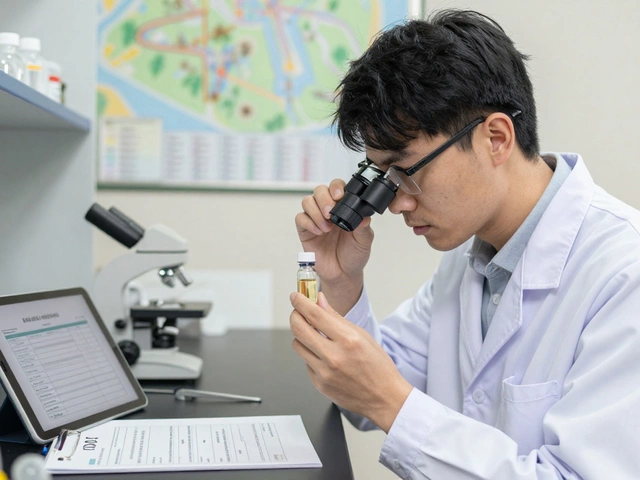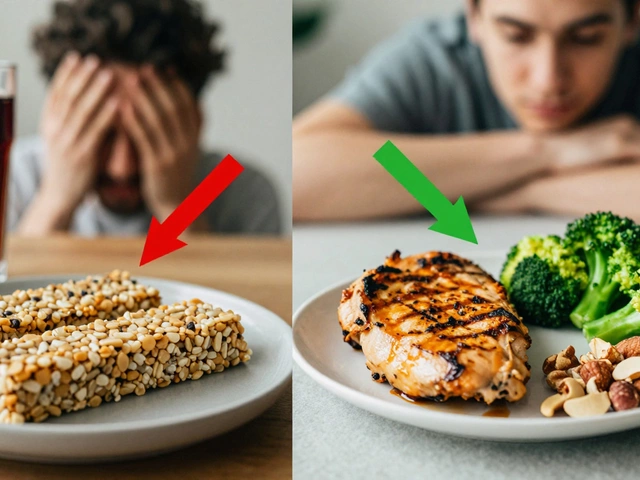In vitro fertilization (IVF) is more than a medical procedure; it’s a journey filled with emotional, physical, and financial challenges. While many discuss the success stories, few address the hidden realities that accompany IVF, such as the emotional impact, the unpredictability of outcomes, and the potential health considerations. This article uncovers the lesser-known aspects of the IVF process, offering candid insights and tips for those considering this path. Understanding these factors can better prepare individuals and couples for what lies ahead.
Read MoreFertility Tips for a Pain‑Free Journey
Looking to start a family but worried about pain, stress, or confusing advice? You’re not alone. Many people think fertility is all about doctors and expensive tests, but the everyday choices you make can have a huge impact. Below you’ll find clear, actionable steps that help your body work naturally, without needless discomfort.
What Really Affects Your Fertility?
First, understand the basics. Hormone balance, healthy weight, and low stress are the three pillars of a fertile body. Anything that disrupts these pillars—like chronic back pain, poor sleep, or an unbalanced diet—can lower your odds. In India, lifestyle factors such as heavy spice intake, irregular meals, and sedentary work often sneak into daily routines. Recognizing these hidden blockers lets you target them directly.
Another key factor is inflammation. When your body is constantly inflamed, it struggles to produce optimal eggs or sperm. Foods that spark inflammation (excess refined sugar, fried snacks, and too much red meat) should be swapped for anti‑inflammatory options like turmeric, fresh greens, and omega‑3 rich fish.
Simple Steps to Boost Fertility Naturally
1. Eat for Hormone Harmony – Aim for three balanced meals a day with protein, healthy fats, and fiber. Include Ayurvedic staples such as ghee, cumin, and fenugreek, which are known to support reproductive health. A small bowl of mixed nuts and a cup of warm milk before bed can steady night‑time hormone release.
2. Move Without Overdoing It – Gentle activities like walking, yoga, or swimming keep blood flowing to the pelvic area without adding joint stress. Even a 20‑minute daily walk can lower cortisol, the stress hormone that often sabotages fertility.
3. Prioritize Sleep – Your body does most of its repair work at night. Aim for 7‑8 hours of uninterrupted sleep. If you struggle, try the Ayurvedic sleep cycle tip: go to bed when the sun sets and wake up before sunrise. This aligns your dosha with natural light patterns.
4. Manage Pain Early – Chronic pain, especially in the lower back or abdomen, can affect hormone signaling. Simple stretches, warm compresses, and, if needed, a consultation with a pain‑free specialist can keep discomfort from becoming a fertility roadblock.
5. Reduce Toxins – Limit exposure to cigarette smoke, heavy pollution, and harsh chemicals in household products. Opt for natural cleaners and filter your drinking water if possible.
Putting these steps into practice doesn’t require a complete life overhaul. Pick one habit to start this week, track how you feel, and add another when it becomes routine. Small, consistent changes add up to a healthier, more fertile body.
Remember, fertility is a journey, not a race. By focusing on pain‑free living, balanced nutrition, and low‑stress habits, you give your body the best chance to succeed. If you still face challenges, a professional who understands both modern medicine and traditional Indian approaches can offer tailored guidance.





